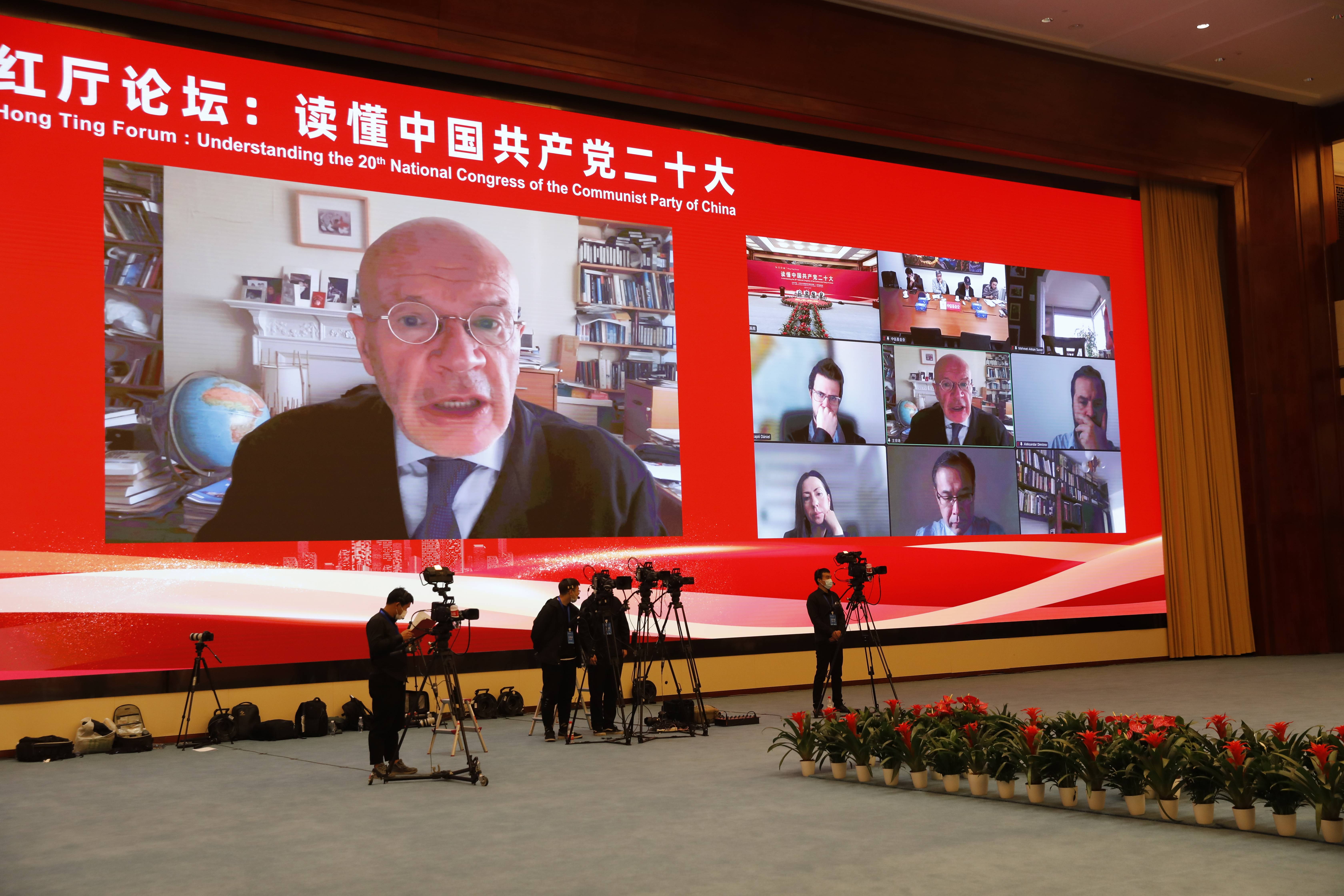

One of the most interesting questions to arise at the 20th Congress concerned Chinese modernization.
Now modernization, the theme of modernization, the problem of modernization takes us right back to China and the early 19th century, when it failed to industrialize at the same time or soon after Britain and other European countries.
In fact, it was 150 years later from 1949 that China really embarked on a strategy of modernization.
And this largely informed the Communist Party's efforts after 1949, especially after 1978, when the strategy of modernization under Deng Xiaoping and subsequent leaders dominated China's attempts to enter the world on economically prosperous and also strong basis.
Now that modernization in this whole period really was inevitably in the shadow of the west.
And therefore, China was always in some degree or other overwhelmingly forced to learn from the western model, to, in some ways, imitate the western model, because that was really the best course of action.
That never meant that it was simply westernized the western modernization, because China had to adapt the western model to its own circumstances.
So it was always very distinctive, actually, even during this period.
But nonetheless, I think it's a broad generalization. We can say, modernization hitherto has been largely based on the western style template.
Now, the Congress raises a really interesting question, which is, we've now got to a period where… We're not at the American level yet, but in some areas, we are. Technologically, we become very innovative. The economy is now the second largest in the world, by some measures, the largest economy in the world.
And so we've got you a point now where we need to think very afresh about the nature of modernization.
What is appropriate for China in terms of modernization? What is appropriate for a socialist country in terms of modernization?
Here, I think the question being posed is an absolutely fascinating one, because it opens up huge new possibilities for China's development in the future.
But I don't want to go into all that now. I just want to take one example. And that is common prosperity.
Now, common prosperity is really, I think, a response in many ways to a period of Chinese development, which, above all, emphasized economic growth, and which, led to very high levels of inequality.
I mean China's Gini coefficient is probably on a par with, if not higher than that of the United States.
Now, obviously, for a socialist country, this is, in the long run, unacceptable.
It needs to be significantly reduced. A different kind of society needs to be built, a society that is inclusive rather than exclusive, that believes the fairness and equity lies at the heart of a progressive society.
So I think what China's embrace of Chinese modernization will centrally include is the idea of a more equitable and fairer society.
Now, the implications of this for China's position in the world are very interesting, because basically joined the whole era of American style globalization, this led to inequality left, right and center across the world led by the United States.
And China was also, to some extent, drawn into that because of the type of modernization that existed in the world at that time.
Now, what happens when China adopts a different kind of modernization, which at the heart of it is fairness and equity.
And it seems to me that if China can be successful at this in the way that it's been so successful at eliminating extreme poverty, then the impact of this, China's impact on the world in introducing the central theme of development, fairness and equity, will be enormous.
Excerpt from Martin Jacques's Speech at "Hong Ting Forum: Understanding the 20th National Congress of the Communist Party of China".
The first training camp of the Center of Innovation and Maritime Excellence, supported by Chinese companies, was opened Thursday in Djibouti City, the capital o...